How a new wave of diverse creators is building a more inclusive metaverse
In the frenzy to figure out what the "metaverse" means, it can be easy to lose sight of the historic opportunity to make the metaverse meaningful. As immersive worlds bloom, creators can be key to unlocking this cultural shift and putting inclusivity at the core of the metaverse experience.

Ana E. – a creator specialising in augmented reality – had a problem IRL. She had been hired by a brand to build a set of hats in AR, but quickly realised that none of the designs handed off to her worked when placed on her crown of luscious curls. Why? Because the hats were all designed for one type of hair: long and straight. Ana told the brand that she couldn't use these designs and wanted to instead create new templates that would work for everyone.
But this is not a story about hair. It's a story about inclusivity. And the lesson is not about hats. For Ana and a new wave of creators leading the construction of the metaverse, it's about the importance of bringing diverse voices to the table from the start, so this immersive new reality can welcome everyone and maybe even become a better place than the world we live in today.
Diversity, equity and inclusion (DEI) are growing in importance, and consumers increasingly expect the builders of the metaverse to answer that call. To construct a metaverse that is meaningful for everyone, surveyed creators stressed that it's paramount for people from diverse backgrounds to build it from the get-go. Inclusive representation, design and experiences are top of mind for the builders of the metaverse as creators have a strong sense of purpose and agency in making sure that the work they do continues to reflect that commitment.
"The foundation of any experience is shaped by those who build it", said Sam Schoonover, head of innovation for the Coachella Valley Music and Arts Festival. "That's why it's essential to bring a wide variety of perspectives – as many as you possibly can, as early as you can."
To grasp the potential of this historic moment, Meta Foresight interviewed over a dozen creators who are building the metaverse to better understand the economic and cultural opportunities that it can unlock. In addition, Meta Foresight conducted in-depth interviews with consumers and brand thought leaders and ran a global survey of 11,000 adults across 11 countries. This research, combined with an analysis of de-identified, aggregated user behaviour across Meta technologies and other media, helped shed light on where the metaverse is headed.
A cultural shift
It's not hyperbole to say that the metaverse is the next chapter of the Internet: a more immersive experience that promises to offer a greater sense of presence, physicality and expression than today's established technology, making you feel more like you are next to a person who could be hundreds of miles away.
An array of technology companies are building products and experiences for the metaverse, and early versions of it already exist in the virtual universes of Fortnite and the photo filters on your smartphone.
But while some of the more popularly understood use cases tend to be in virtual reality (VR), the metaverse will extend beyond that and include AR glasses that project digital information on the world around us like a heads-up display of a fighter pilot or your car windshield. And just as shopping is now a hybrid of online and offline, the metaverse will be a mixed reality that blends the digital and the physical.
Ultimately, the metaverse will emerge not as just a technological shift, but as a cultural shift led by creators. After all, creators have always been at the forefront of change, finding the warm humanity in our cold tools. Creatives saw the potential for turning personal computers, the web and smartphones into world-changing platforms of artistic expression. The metaverse is likely to be no different. When it comes to the cultural trajectory of the metaverse, creators can be the beacon, the builders of and the bridge to the future.
"Any movement that typically has creatives at the forefront helps society move forwards", said Ilyas N – a graphic designer and expert in 3D animation.
There's a lot to do before the metaverse is fully realised. It's not just the software, hardware and infrastructure that needs to be built; another challenge is access to those tools and reliable Internet improvements globally. There are also complex, but critical issues around diversity, equity, inclusion and governance that need to be addressed for the metaverse to flourish.
Years from now, the true legacy of the metaverse won't be the technology that it leaves behind but, rather, the people it brings along.
A creator renaissance
Though it's still early days, it's already clear that the metaverse is unlocking opportunities for many people who have historically been excluded from the digital frontier. Take Alex and Matthew of Nspire Create Labs: Their company was quite literally born in virtual reality. In fact, the school teacher, former bus driver and a handful of other creators met in Meta Horizon Worlds – a VR platform from Meta accessible through both the Meta Quest 2 headset and, soon, any device over the web. They began playing around and learning the technology. And, as the demand grew for their skill sets, they realised that ample opportunity existed to make a living from what used to be a side hustle. They decided to leave their former jobs and form a company focused on building metaversal experiences. Since then, Nspire Create Labs has led several large projects for the top brands in the world, including Wendyverse in Meta Horizon Worlds.
As the value of the metaverse grows, more and more creators are spawning companies and brand partnerships and democratising creativity. These days, it's not unheard of for an AR, VR or metaverse developer with a successful project to springboard into founding their own LLC (limited liability company). Consider Ashley Briley – an African American Ohio-based creator focused on bringing DEI into the metaverse – who helped build NOPE World – a VR experience in Meta Horizon Worlds based on Jordan Peele's hit film. She got so much attention for her work that she recently quit her day job as a CPA and launched a VR studio. The beauty in the genesis of the metaverse is how new people are being brought into the fold who have been previously unrepresented or excluded. This inclusive new reality and the enormity of the development to come has the potential to create an unprecedented wave of economic opportunity that will likely continue far into the future.

"The biggest risk of all?
Not taking the metaverse seriously."
Ana E, AR Designer, AR motion designer

Facebook posts about the metaverse have continued to increase by 13 times year over year3
Poised to become a USD 3 trillion engine of economic opportunity4
Creators
Since the launch of Meta Horizon Worlds, creators have already built 10,000+ worlds5

Consumers
In the US alone, the metaverse has the potential to create 770,000 jobs6

Companies
51% of consumers surveyed globally say that they'd be interested in buying virtual products from a brand7

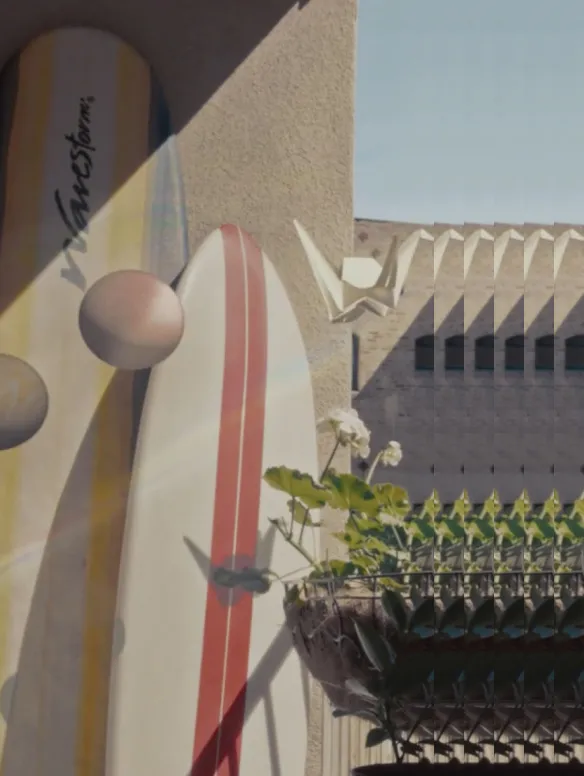
01
Building a better world
As construction of the metaverse ramps up, creators are unambiguous in their passion to shape a more inclusive and better world.
Look no further than the fascinating sphere of non-fungible tokens, or NFTs, unique digital objects built on blockchain technology. Although NFTs can be seen as exclusive, Sam Schoonover, Coachella head of innovation, and his team overturned that stereotype. The NFTs sold at Coachella ran the gamut in price, offering physical items (such as photos) and unique experiences (upgrades) to delight loyal fans, new fans and everyone in between.
Sam also worked with diverse creators from around the world, including Girls Who Code, to create relatable AR experiences in what's known as Coachellaverse. The Coachellaverse created a virtual gateway for fans to experience Coachella on a global scale using AR. The AR effects enabled fans to interact with a playful collection of characters, objects, textures and sounds through their smartphones. For example, creator Paige Piskin's 2D body tracking butterfly wings let Coachella fans everywhere explore innovative experiences in festival wear. Empowering people to be their unique selves was imperative in this process.
Diverse creators were a unique part of Coachella. But over the long term, their unique skills, perspectives and loyal followings mean that they are likely to be the engine of the most compelling metaversal experiences.
Don Allen Stevenson III – a former video producer and motion graphic designer who is now a metaverse creator and consultant – is passionate about technology being built by people from all backgrounds and has an interesting perspective on how the metaverse can be built inclusively. He likens it to baking a carrot cake: You cannot simply add a carrot to the top after the fact; you must include the carrot as a key ingredient, baked in from the start.
As a man who lives by his values, Don recently shared this analogy via a reel on Instagram with a call to action for artists who identify as a woman, as nonbinary or as a person of colour, so he could grant them access to a cutting-edge tool that will help them create metaversal experiences. Don also requires brands that he works with to allow him to make videos about his creation process. For him, streaming these videos on social media democratises the creation process and helps empower more diverse creators.
When diverse creators build inclusive and meaningful experiences, they say that the metaverse can become a place where people feel that they belong and where they can expand their horizons and enjoy new perspectives.
Ilyas N – a senior graphic designer focused on 3D animation, VR and AR – describes how a social experience in VR unlocked empathy for him when he stepped foot into I am a Man in Meta Horizon Worlds for the first time. As an African American who has worked with musical artists on creating diverse metaversal experiences, Ilyas always knew about the fight for freedom and equality during the civil rights era. But to literally walk in the shoes of the people who fought for their rights allowed him to have a more personal understanding and deeper awareness of the struggle.
Creating meaningful experiences designed to be equitable, inclusive and empathetic will be a key motivator for creators building the metaverse. They also seek purposeful partnerships with brands that share their creative visions. For Don Allen Stevenson III, if a brand or project doesn't align with his values, he simply doesn't work with them.
"I stopped working for my clients", says metaverse architect Quittman F. "Now I tell them, I'm going to work with you – as a partner. Because experience has shown me that is how we get to the best outcome."
Another creator, Luke Hurd who worked on Coachellaverse, reminds us that it's not always about technology – it's about people. In practice, this means building experiences that solve real problems or spark real joy for people.

"One of the best parts about the dream of what the metaverse is, is that we are building this for us. What we're building is for humanity; it's not humanity being crammed into technology."
Luke Hurd,
director of experience design at VMLY&R
When Luke is building metaversal experiences for brands, he asks himself if what he's building is truly inclusive and designed for everyone. For example, he makes sure that people of colour have the correct hair representation and that computer vision models are trained on humans from diverse backgrounds so that people can see themselves and be seen in the metaverse.
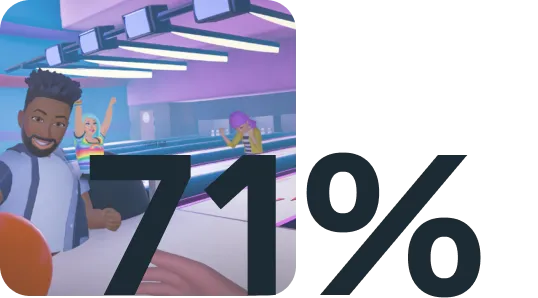
of early adopters surveyed globally wish that there was a way to have more meaningful, authentic community experiences online (and are excited that the metaverse may solve this)2
Technology, social media and content providers can also play a key role in promoting inclusion in the metaverse. Neisha Tweed Bell – global head of inclusive content and experiences at Meta – has set out to ensure that the metaverse is a meaningful experience for everyone. Her team consults and co-creates with ad agencies and brands to ensure that DEI is a central consideration.
As platforms bring together billions and billions of people, Tweed Bell says that Meta must make sure that people feel seen and valued in the content and experiences that they consume. "I'm really focused on trying to make sure that Meta is a leader in delivering work that is authentic, representative and pushing the needle", she says.
Being intentional, asking the right questions, building diverse networks of talent and broadening access to the metaverse for users and creators are all top of mind for Meta.
Through Meta Immersive Learning, Meta is investing USD 150 million to help empower the next generation of creators, launch high-quality immersive experiences that can transform the way people learn and increase access to learning through technology. Meta has launched the creator marketplace, which helps creators better connect with relevant businesses, build and prepare for the metaverse and access tools to help them push creative limits. Through initiatives such as the Metaverse Culture Series, Meta is also fostering environments where diverse communities can thrive. By bringing together creators and culture carriers, the series allows diverse creators to build more meaningful experiences, while exploring culture, identity and equity in the metaverse. The company is also enabling creators to share their digital collectibles across Facebook and Instagram. This will help democratise access to economic opportunity and give creators more control over their work.
Meta is ensuring that everyone can feel represented by offering more than 1 quintillion different attribute combinations for Meta avatars. Everything from skin tones to facial shapes and assistive devices, such as hearing aids, wheelchairs and more, are available so that a more diverse array of people can feel represented and included.
According to the latest Annual Diversity Report by Meta, more inclusive workplaces can be built through a Meta tool that uses AI to translate 200 languages. Knowing that access to VR hardware can be a barrier, Meta Horizon Worlds will soon be available on any device over the web to enable more people to try out the immersive experience. For creators, Builder Bot is lowering barriers to entry by allowing people to use voice to collaborate and manipulate objects, spaces, sounds and skyboxes in Meta Horizon Worlds.
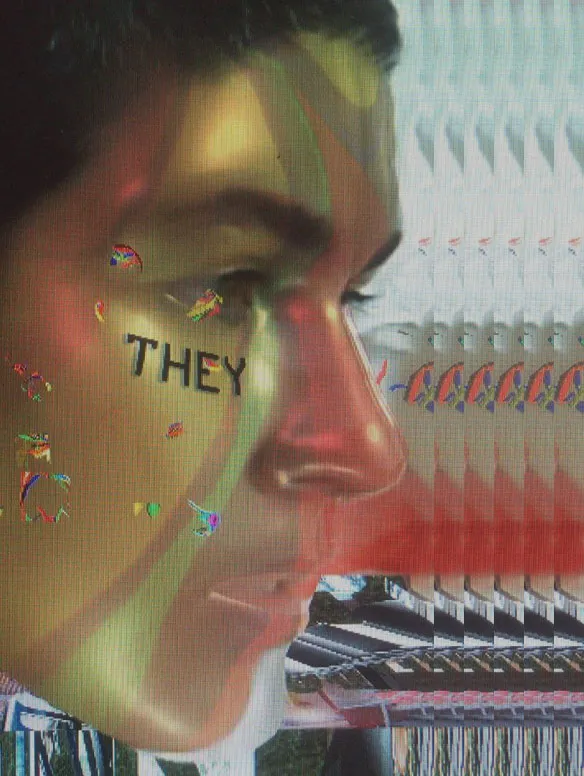
02
The creator power shift
As the metaverse begins to bloom, there's a major power shift at play for creators as many find that they're less limited by the systems and structures of the past. The very definition of "creator" is expanding and evolving in profound ways. Beyond acting as brand ambassadors, many creators are building their own brands. If the old guard creators were influencers and tastemakers who traded on their street cred and audiences that they commanded on social media, the next generation of creators are more technical in nature and appear with new job titles such as XR creator. There will also be new hybrid creators who blend cultural expertise with technical prowess that are known as metaverse architects.
The metaverse enables creators to be part of something greater than the sum of its parts. As the creator economy emerges, creators are developing and monetising more of their own intellectual property, as well as banding together and rewriting the rules of co-creation. In addition, the technical complexity of the metaverse requires new types of collaboration. So creatives are lending their strengths to collectives – whether in Facebook groups (such as Horizon Creator Community and Women in Horizon Worlds) or DAOs (decentralised autonomous organisations) – where creators come together to share knowledge, cultivate community and build experiences that people never could've imagined before.
This power shift is also impacting collaboration dynamics with brands. Before the metaverse, creators say that it was common for brands to loop them into projects at the last minute. Now, brands increasingly realise that it's essential for creators to be part of the strategy from day one, according to creator and AR designer Ana E. "Creating is no longer a side hustle", says Benefit Cosmetics' in-house creator Yara Ayoob. "The demand for creator collaborations is increasing on the daily."
Whether a creator is in-house or not, forward-looking brands are empowering creators to create content – in a way that's thoughtful, inclusive and meaningful.
Mastercard's True Self World in Meta Horizon Worlds is one example of creators partnering with a brand to build a more inclusive metaverse. Mastercard has been a long-term ally of the LGBTQIA+ community, creating the True Name card feature, which allows transgender and nonbinary people to use their chosen name on their payment cards. True Self World was built by and for the LGBTQIA+ community with creators @SKitter_ and @RhondaX bringing Mastercard's Pride and community support to life for the first time in virtual reality via Meta Horizon Worlds. This ongoing virtual space provides the LGTBQIA+ community and their allies an immersive space to reflect, connect and celebrate how living your true self is priceless.
"True Self World is a beautiful example of how people can create inclusive communities in a way that may not be possible in the physical world", said Nada Stirratt, VP global business group at Meta.
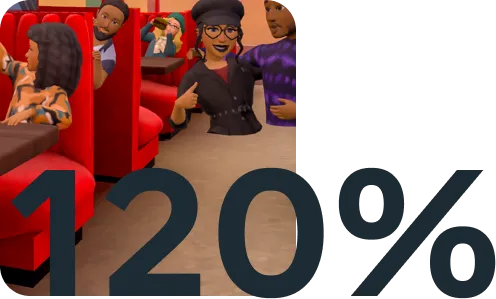
Posts of #CreatorEconomy on Instagram have grown by nearly 120% year over year1
As these collaborations show, the metaverse, Web3 and blockchain are already unlocking all kinds of economic opportunities for creators. NFTs and DAOs have the potential to provide a new means of revenue and creative expression to advance the democratic ownership economy, where people and creators have more control and transparency.
L'Oréal's Ads for Employment campaign demonstrates how AR can be a powerful tool to grow economic opportunity and transform lives. This campaign enabled aspiring make-up professionals with limited economic resources to use AR to demonstrate their skill sets, bringing them closer to their goal of gaining employment within the beauty industry. This initiative was initially led by a well-known creator whose journey as a trans woman trying to break into the beauty industry inspired her to be the change that she wanted to see. Because of the difficulties she encountered, she is passionate about helping other underrepresented communities create their own paths and is now an actress and comedian with more than 6 million followers on Instagram. The partnership shows how the metaverse can unlock opportunities for the many – especially when brands treat creators as expert partners.
In a world where trust of creators continues to grow, they will likely play an increasingly critical role as a bridge between people and brands and a more inclusive, meaningful future. In short, if the metaverse is a party, creators will be our hosts.
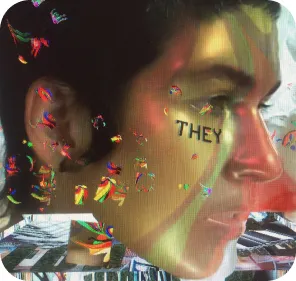

"I love creating art. But I live to create change."
Cibelle,
an artist and XR creator
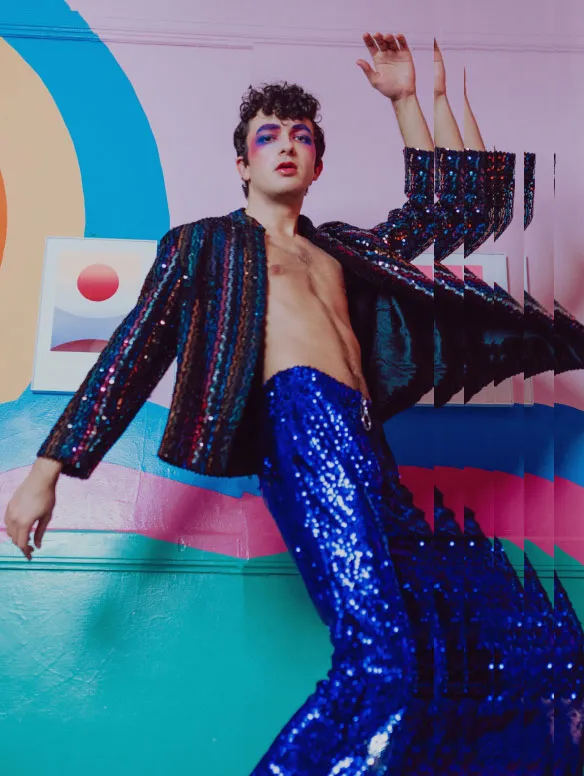
03
Brand
implications
The metaverse is what we make it. Its true promise is not "digital twins" but rather, creating a better world that enriches our physical reality. To build a truly inclusive and meaningful metaverse, brands should embrace and enhance the creator-driven culture of the metaverse in the following ways.

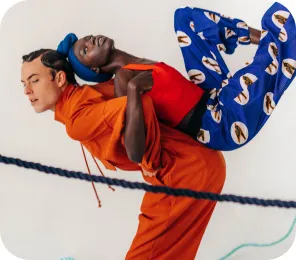
Reimagine collaboration
Embrace the tenets of creator culture, fostering a co-creation model that puts diverse creators at the centre of the experience. Expanding creativity and freedom for creators will be vital to realising the vision. Work collaboratively – as true partners – with this new generation of creators, crossing lines of artist, activist and technologist, so they can help shape an authentic vision. Meta Spark creator network is a great start.

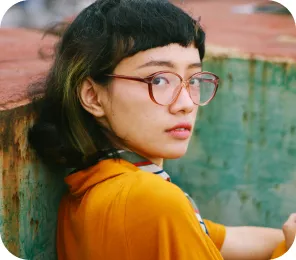
Make meaningful experiences
Make your mission about using emerging technology to solve real problems for people. Giving people a reason to return to your experience and the ability to use your brand to tell their own story is key. Diverse creators can help ensure that you do this authentically. Finally, as you rethink the brand-consumer relationship and meet consumers where they are, seek to enhance their immersive experience – not interrupt it. By being additive, brands have a new opportunity to make every moment matter.

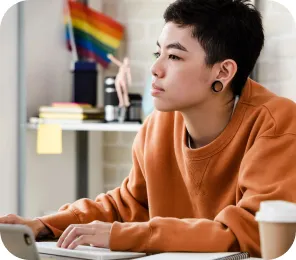
Always be learning
How do you become so innovative that you put yourself out of business? Make upskilling a life skill, a daily practice, a cultural tenet. Adaptability will be key, and diverse creators can serve as an inspiration. Leveraging the metaversal technologies of today (such as AR ads) can help build the foundational knowledge and skills for you to seize tomorrow's opportunities. Creators and brands alike must learn continually as it's the ticket to entry into the metaverse.
Explore
Stay in touch with tomorrow.
Sign up for our email newsletter to get the next story in the great relationships reset series and other timely insights from Meta Foresight delivered to your inbox.




 Contents
Contents





